by Krista Ruesch
Shirtless on my tippy toes, six years old, I stood in profile and stared at the long scar extending from my armpit, reaching around the side of my chest and spreading out across my back. I faced the mirror and the smooth, flat scar stretching down the center of my chest, from the collar bone to the bottom of my rib cage. I turned back and gazed at that mystery scar on the side of my chest and started to feel scared and upset. I started calling my mom, who rushed in the bathroom, sensing the panic and urgency in my small voice. I pointed at the scar under my arm, as if she must be seeing it for the first time. “What is this?” I ask her. “What happened here?!” My mom stood there looking at me for a moment, both surprised and confused. Strangely, she seemed slightly amused at my discovery. She explained that the scar was from my first heart surgery. I knew I had two heart surgeries by the time I was 19 months old, but the only scar I could ever see was the one down the center of my chest. I had come to terms with the scar and what it meant—I was alive—and I knew at six that it was a miracle that I was standing there in the bathroom that morning. Seeing the other scar was another experience entirely. The scar down the center of my chest is neat, smooth, and flat, suggesting extreme care was taken during and after the procedure. The other scar is unwieldy: thin in some places, wide and flat in others, moving around my ribs, carved around the area just outside of my heart.
The appearance of the large, crude scar sums up the urgent nature of my first heart surgery, tying me to deep memories of fear, terror, and uncertainty. The second scar from my open heart surgery represents the real healing that occurred in my life, and brings to mind the round-the-clock vigil of my parents, grandparents, aunts, uncles, and family friends, so I was rarely alone or without my family when I was in the hospital. One evening after my parents left to pick up dinner, the nurses lifted the cold silver bars around the bed and sent me into an absolute fit, the sound of cold metal clicking into place. Pediatric hospital beds have very tall sides that can be adjusted for height. To an infant or small child, it’s a lot like being put into the zoo. I remember little of the evening, only that I was completely terrified.
To this day it is impossible for me to comprehend that the stories my family have shared of the fragile premature baby who spent the first five years of life in limbo, is in fact me. These scars represented mysteries of my life. A secret life of which I have no recollection, yet they intrigued and frightened me all at the same time. Despite going on to have a healthy childhood, I possessed this knowledge that life is precious and can be extinguished at any time, for any number of reasons.
Born two months premature, I was delivered in an ordinary hospital room by a nurse who was checking my mom’s vital signs. She calmly assured my mother, who was convinced she was about to give birth, that everything was fine. When my mom started hollering, the nurse lifted up the sheet to examine the pain and moments later I popped out of the womb and into the nurse’s un-expectant arms. My mom says I flew out of her womb like a champagne cork flying out of a bottle on New Year’s Eve, complete with the magical pop that awakens a feeling of celebration in the hearts of most people. I weighed just under four pounds.
My dad was hanging out outside the hospital room, waiting for the nurse to leave. Suddenly the door flew open and the nurse emerged, panicked, moving swiftly while holding a bundle of blankets tightly to her chest. He heard a baby cry as she ran past him, and despite the shock of the moment, he knew he had just became a father, this happy thought stamped out by the reality of the situation. Standing in the hallway, he came to terms with the strong possibility that they might never meet me, they might never hold me. The nurse ran down the hall with me swaddled in her arms, cradled tightly to her chest as she made her way to the neonatal intensive care unit, in an effort to save my life.
•
My parents have been friends since they were five years old. They grew up roaming the woods of Government Hill, a gang of railroaders’ kids, let loose in the patch of woods that separates The Hill and the railroad yard. My parents’ bond is one built on friendship and it is difficult to explain the deep complicated love they share. In those uncertain moments following my birth, my parents were filled with the far-fetched hopes that they could hold me in their arms and be granted the opportunity to watch me grow. They had to find strength in each other in order to remain strong. They never stopped believing that I would survive and their strength and courage are the qualities that gave me the ability to overtake a body born too soon, to heal a heart that was broken from day one, and to carve out a wild life for myself. This life I have crafted in bits and pieces is a partnership of the heart. My parents and my husband have been the forces in my life that continually draw me back to the wild, and my children have given me a gift simply by being born and delivered into my life. The handful of years I have spent as their mother have reminded me of the lessons I learned when I was their age.
•
I came into this world with force, determination and the will to survive. The combination of undiagnosed placenta previa and the lure of the summer solstice sun were all I needed to make my grand entrance into the world and declare my place in my parents’ lives. I was six months old before I was diagnosed with ventricular septal defect, seven holes in my left ventricle. As a result, I had congenital heart disease and was unable to gain much weight, or maintain medical stability. I went on to have two risky and experimental heart surgeries. The second surgery was the scariest, an open heart surgery at 19 months. But then I started to gain weight and fit into 9-12 month size baby clothes. My parents were filled with hope that I had a fighting chance to make it in the world because I had survived the unimaginable. When I was three, my doctors told my parents that if I lived to my 5th birthday, I stood a very strong chance of living a full and beautiful life. When I turned five I remember my mom breaking down into a fit of sobs. Joyful, thankful tears.
As a child I was discouraged from playing sports because everyone in my world feared I was too fragile; I was treated as though I might shatter like a glass, falling to the floor and splintering into a thousand tiny pieces that could never be fixed. I didn’t run or play sports. I loved biking but went about it in the most careful, cautious manner possible. I became proficient at assessing the potential risks of any activity that could be dangerous in any way. I usually opted out of participating, just in case I might be broken.
•
Out of sorts and unfulfilled, many years later, I committed to writing three single-spaced, typed pages per day starting on January 1, 2011. I would write about why I thought I was feeling the many things I was feeling and I journaled about how I would like to see my life in five, ten, twenty years. I just wrote it out. I tried to capture every thought, idea, feeling, emotion I had, and let that inner voice translate the language and allowed the letters to slip through my fingertips, hitting keys strategically—making words, and chronicling my transition into motherhood. Exactly 57 days, or 171 pages, later I found myself having a mini-breakdown in my walk-in-closet, out of answers, but not yet out of words.
My focus on personal wellness shifted towards building a family and in the process I lost part of myself in the intensity of mothering two children under four years old, while focusing on completing my degree, and co-managing a whole house remodel with my husband. I was completely exhausted and felt overwhelmed at the prospect of navigating the next few years with two small children and a career-focused husband whose work supported our family and allowed me to take time off from my own career and focus on the needs of our family. I enthusiastically entered motherhood with the expectation that I would deliver the baby and instantaneously have all the answers to parenting that everyone who’s ever been a parent has been seeking for thousands of years. The mysteries of unexplainable 3:00am crying jags would be solved, as I set out to master the art of putting an infant to sleep (and keeping them asleep for as many hours as possible). Then, during wakeful periods I would learn how to engage the infant brain and help develop an enthusiasm and passion for learning. I went into parenthood with impossibly big and completely unrealistic expectations. I expected parenting to bring a sort of enlightenment at the very least, and perfection as a best case scenario.
While I was busy waiting for enlightenment, I decided to make myself comfortable, so I sat around and ate a ton of food to support my body in breastfeeding, which helped lose some of the pregnancy weight but did nothing to help me regain my pre-pregnancy body. My body felt slack and my posture sagged. Two months of bed rest, a frightening c-section delivery, and a few medical mysteries later, I meandered through the days lethargic, my inner spark extinguished.
I set goals. I’d start running. I’d do it. Lots of lofty and overwhelmingly complicated goals with details and specific measurements for performance, and built in periods for re-evaluation and self-check in. I was strategic, focused, deliberate, and determined. And then one night after a two-hour online class suffering through the squeaks and moans of a fussy baby in the other room, which made my breasts uncomfortably heavy and left me anxious and overwhelmed, I knew I just had to get out of the house, even if it was hovering below 0 in the ice fog outside.
That frosty night in February I slipped on layer after layer and picked up a pair of studded running shoes I purchased when my husband and I first met five years before. We had both bought a pair when we began dating, and had lofty goals of wintertime trail-running adventures together. You could say I had been dreaming of running for some time, but simply never got around to it. Five years later, I still had that brand new pair of running shoes, perfectly suited for the conditions outside. A gift from my past self. A signal: move forward. I laced them up.
They felt stiff, clunky and awkward. Everything about my outfit felt foreign. These were not the clothes that felt comfortable, pre-baby. They barely fit. Dismissing that depressing fact as quickly as possible, I queued up my iPod and blasted the loudest, most angst-ridden playlist I could concoct and set forth to conquer our street. I shuffled slowly, every muscle, bone, and thought in my body going “NO!”, my mind going “YES!”
We’re told of the importance of listening to our body and the messages it sends us, and it’s true—the answers present themselves if you dedicate yourself to seeking them out, but sometimes you have to play the role of firm and loving parent and tell your body to suck it up, stop whining, and keep moving. My heart was racing, my lungs ached as I sucked in the frozen night air, my legs were on fire, all of my body’s internal alarms were going off simultaneously and for the first time in my life I dismissed them. As I ran the streets that night I realized if this was going to kill me, so be it, I would die trying to feel; to feel something real, to experience the pain I’d silenced, to meet my deepest fears head on and to grieve the losses I held tightly within the chambers of my heart. I would do it one step at a time, one mile at a time, one day at a time. Moving forward. I returned home that night, exhausted and out of breath, after covering the three streets in our neighborhood a half dozen times each, at a pace that I now use for brisk walking. I turned from the front door and paused, entranced by our snowy tree-lined driveway. Tendrils of frost dripped off the tips of branches and everything sparkled, each tiny speck with the power to radiate light amidst the unrelenting darkness. Hope.
•
After a lengthy CAT scan, I received a medical release from annual cardiology exams and was given the go-ahead to train for any race, of any distance that I set my body and mind to accomplish. To quote my cardiologist, “You can do an Ironman!” That was the day I decided I would. Later that year I completed my first half-marathon and triathlon. The year after that I completed my first marathon, working my way up to a Half-Ironman, before setting my sights on a full Ironman, all 140.6 miles of it.
In the 6,500 (and counting) miles I have covered since those first steps out the door, I have liberated my body, myself. Despite lacking any natural athletic ability or talent, I found a way to build upon a deeply flawed foundation: my heart, those seven tiny, life-threatening holes scattered across the left ventricle. One of my favorite sayings is “Distance makes the heart go stronger,” and so I run long to be strong.
•
Slipping on my gear that cold February night, I glanced at the bathroom mirror, quickly gazing at my scars—smooth and flat, down the middle; rough and jagged across the side—and stopped. I squared my shoulders. I accepted it. I took a breath. I had let it define me, these 27 years. I had to accept that too.
Then I tied up my awkward, unfamiliar, new running shoes and set out into the darkness to lose my feelings in the cold and ice, explore my limits, push the boundaries. I had survived, but never really thrived. Now I would thrive.
•
The morning of my first marathon I woke up at 4:00am, terrified and anxious. Afraid, despite all the physical and mental conditioning, that my body would buckle. I gave my best friend a fearful and tearful hug at the starting line and moved forward, one step at a time, every step disproving my theory, my fear my heart would explode. As I entered the final mile of the race, a sadness came over me. The end of the race meant the end of excuses, the end of limits, the end of everything I knew. My best friend met me at the top of the final hill and ran me down the home stretch, side-stepping the finish line. When I crossed the finish line volunteers slipped my finishers medal over my neck and wrapped me in a space blanket, then I stumbled into the arms of my husband and best friend. I was alive. Finishing a 26.2 mile race marked the start of a new chapter in my life. Possibilities that I could not fathom opened up and my life changed dramatically over the next twelve months.
One year to the day later, I woke up in the unfinished log cabin we had bought, selling everything and moving six hours from Anchorage to the middle of nowhere. A dream come true. The future, hazy at best. Here I was with the same loving husband and active, joyful children—everything about my life and how I saw myself changed. Running allowed me to redefine myself, to redirect my energy, and it gave me the courage to do things that scare me, because running instilled faith in my body, in my abilities, and most importantly, in myself.
Scott Jurek, vegan, ultra-running god and my personal hero, was diagnosed with high blood pressure as a child, but did not let it define him. Instead, a life mission was born. When asked, “Why run?”, Jurek responds: “Sometimes you just do things.” When I started, it was to run away, from my heart condition, from stress and anxiety over motherhood, from the complexities of life. Now I run towards something, often an invisible force, a feeling, a pull—moving forward, one step at a time, seeking out the wild places and unkempt spaces in the world that hold treasures to those who come out into the world feeling empty and return overflowing with comfort and strength.
[divider]
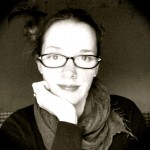 Krista Ruesch is a writer, photographer, crafter and adventurer who blogs about her adventures living on the edge of Wrangell-Saint Elias National Park and Preserve. Krista is a recent graduate of Alaska Pacific University in the Business Administration and Management degree program with an emphasis in non-profit business. She graduated in December 2013, cum laude, with a senior project of distinction titled “Native Youth Olympics: Outcomes for Alaska Native Athletes”. In August 2013, The Wild family sold their perfect house in Anchorage, her husband quit his job and they moved into an unfinished log cabin 7 miles away from the nearest town of 100 people. Krista is blogging (as H.M. Wild) about her family adventures living on the edge of the wild, be part of the journey!
Krista Ruesch is a writer, photographer, crafter and adventurer who blogs about her adventures living on the edge of Wrangell-Saint Elias National Park and Preserve. Krista is a recent graduate of Alaska Pacific University in the Business Administration and Management degree program with an emphasis in non-profit business. She graduated in December 2013, cum laude, with a senior project of distinction titled “Native Youth Olympics: Outcomes for Alaska Native Athletes”. In August 2013, The Wild family sold their perfect house in Anchorage, her husband quit his job and they moved into an unfinished log cabin 7 miles away from the nearest town of 100 people. Krista is blogging (as H.M. Wild) about her family adventures living on the edge of the wild, be part of the journey!

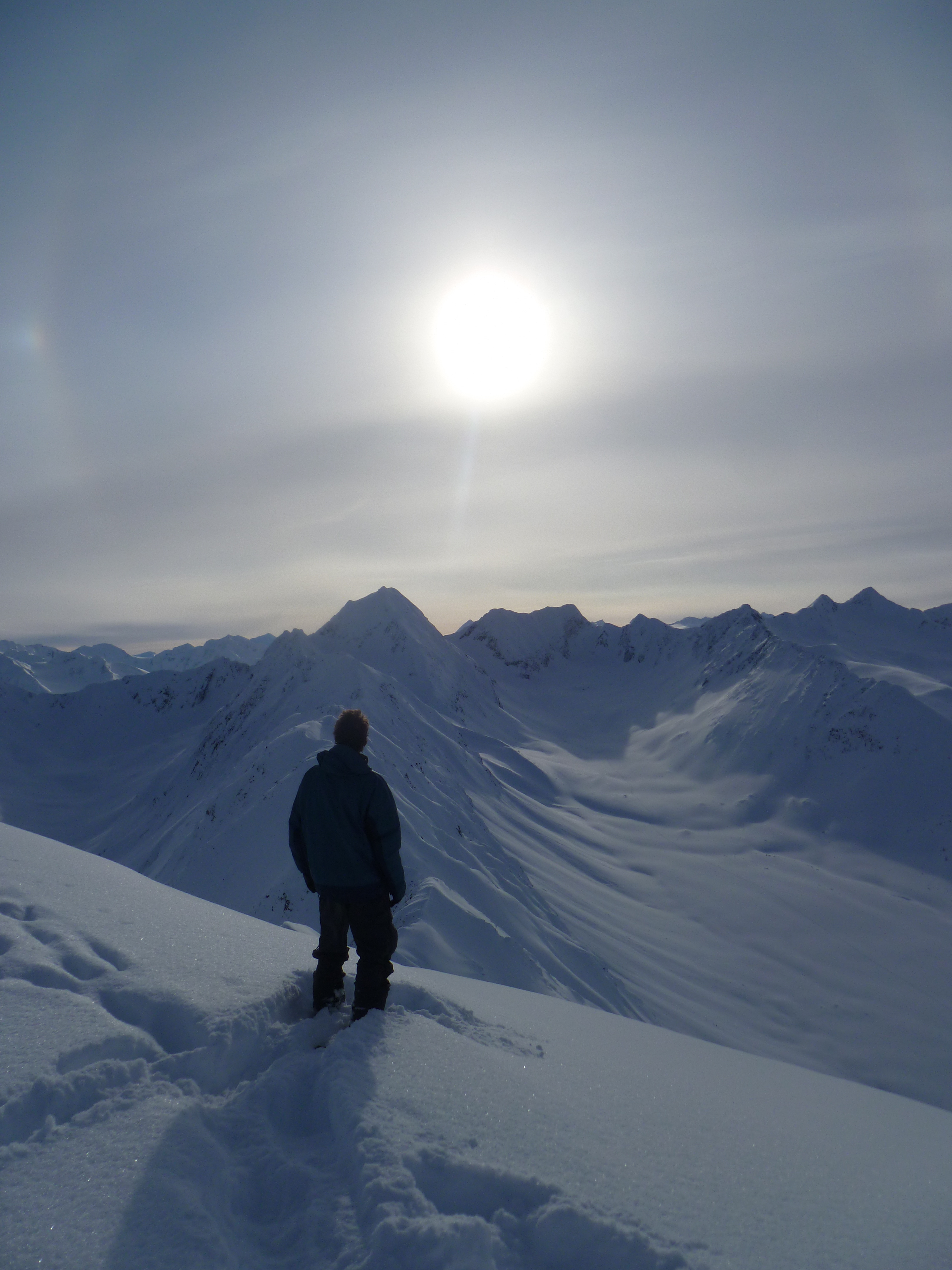

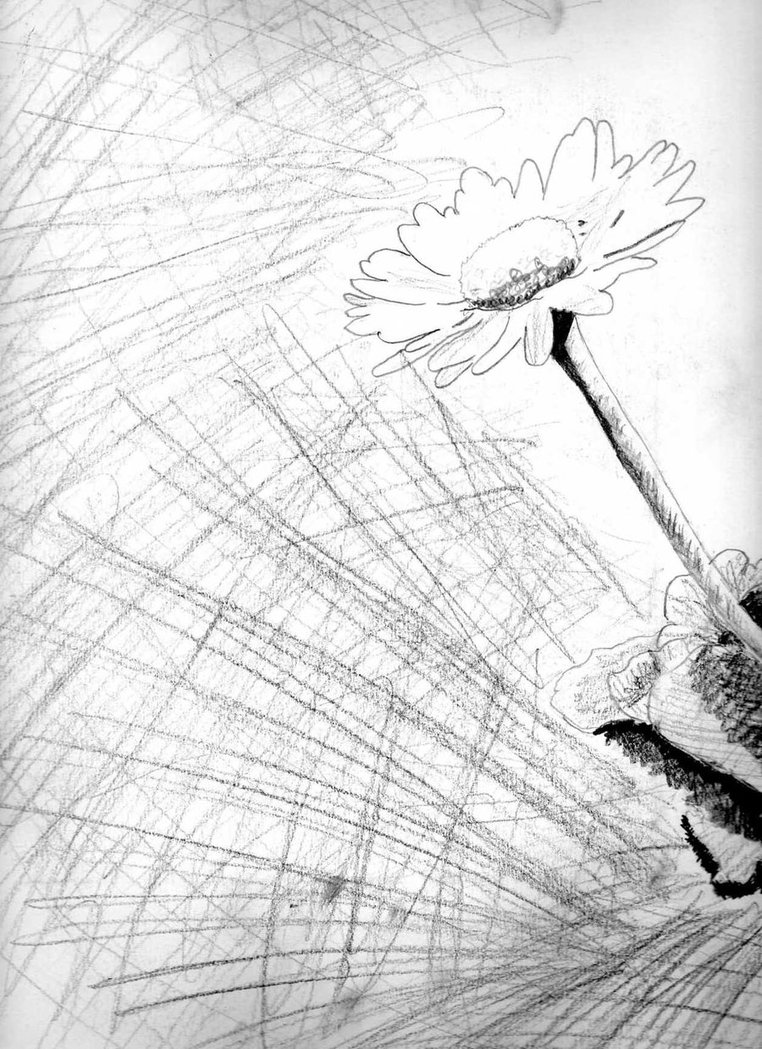
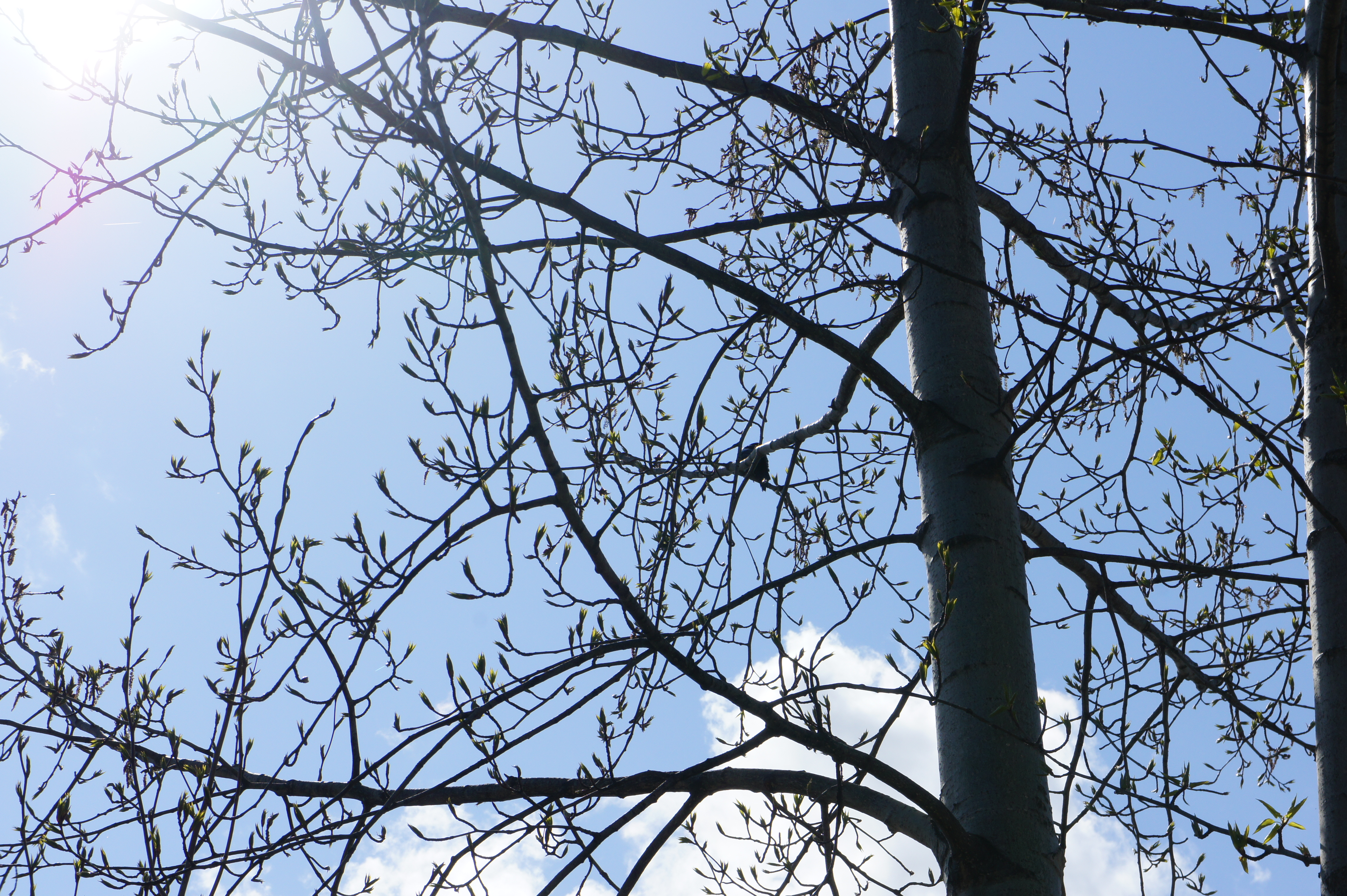
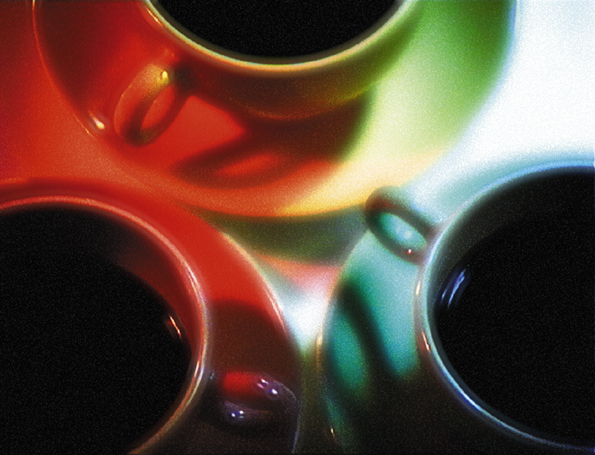
3 Comments
Sean Clapp
What an incredible story. Turning a hard start at life into a positive outlook on life. Thank you for sharing.
Ava Evans
I love this piece of writing. It is so passionate and very well written. The thought idea of being told all your life that you can’t do something and then realizing that might be exactly what you need to do to make your self happy is very empowering. She writes a very passionate tale with great detail.
Lorien Kauffman
Your story is inspirational to me both as a runner and as a person. I love how you describe both how painful and how rewarding running is. How it can change your mindset and deepen your understanding of what it means to be strong in so many ways. It is incredible how you overcame life-long fear and uncertainty to achieve your goals. Thank you for sharing this!